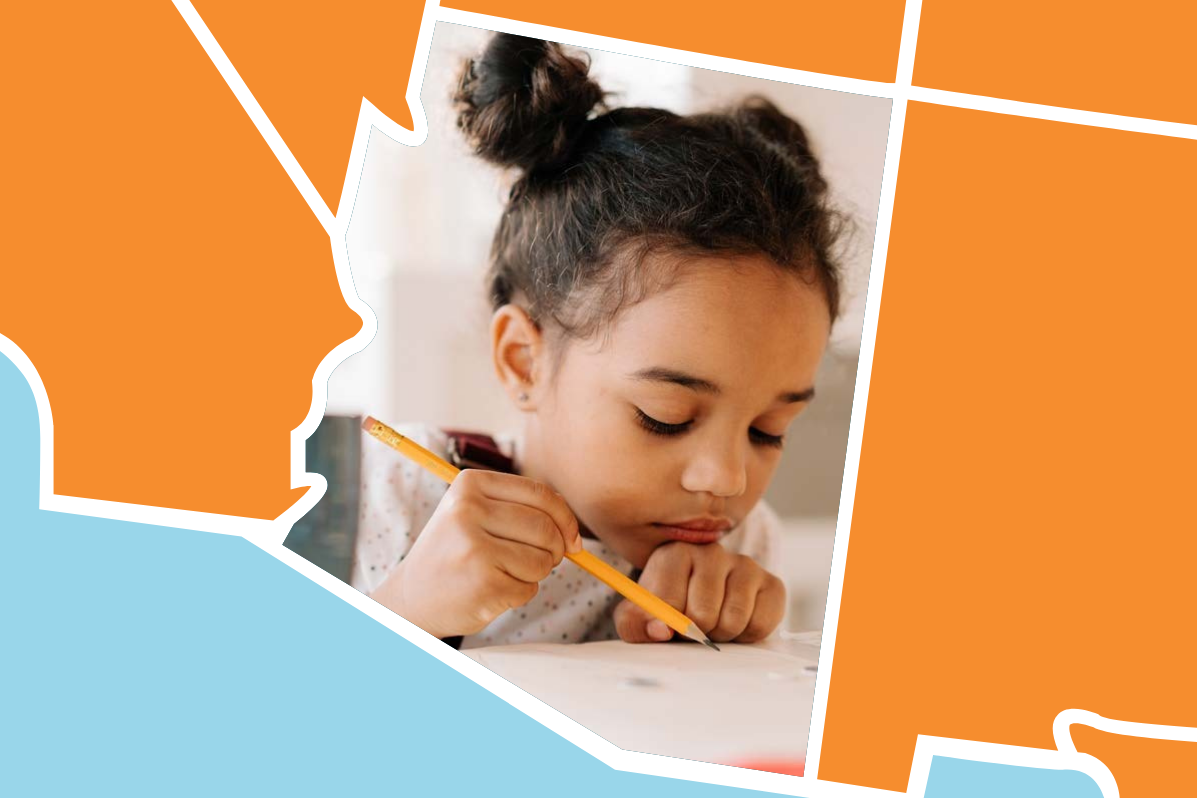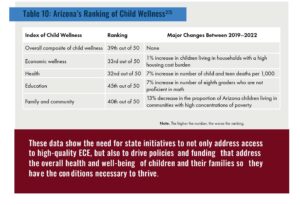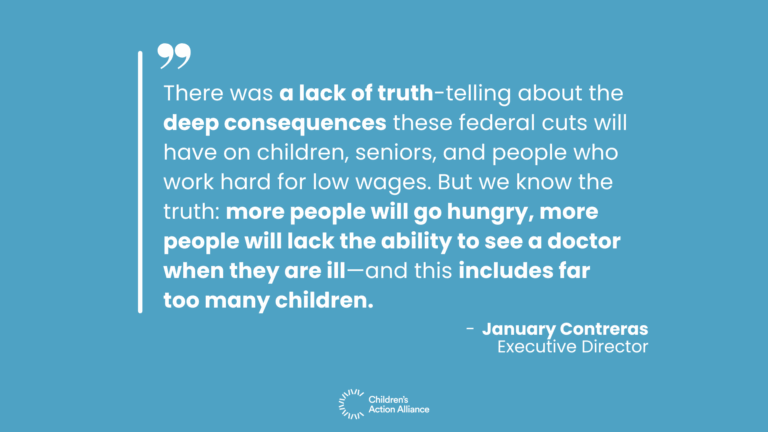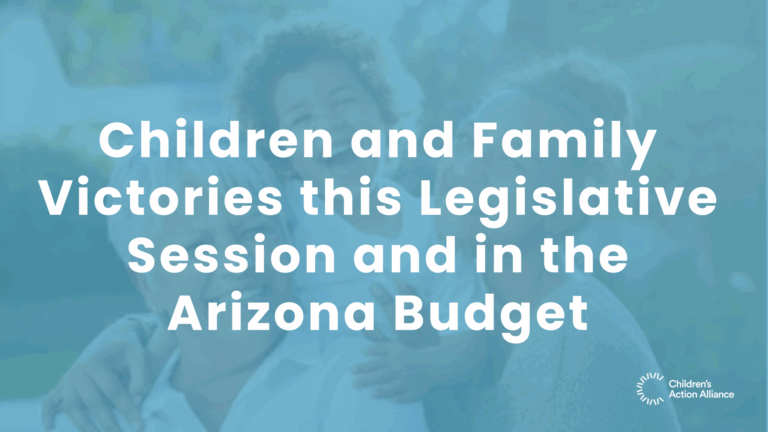
Equity in Early Childhood Education: Arizona's Call to Action
This past week, Southern Arizona advocates gathered in Tucson to discuss how to make our early care and education (ECE) systems more equitable.
Children’s Action Alliance partnered with Child and Family Resources and United Way of Southern Arizona to highlight ASU Children’s Equity Project’s landmark report “Start with Equity Arizona: Increasing Access, Improving Quality, and Advancing Equity in Arizona’s Early Care and Learning Systems."
The report ranks the state on child wellness. It examines early care and education, including child care and preschool, with an emphasis on how many Arizona children and families lack access to those systems, particularly those from historically and contemporarily marginalized communities such as children who are Latino, Black, Indigenous, as well as children who live in rural communities and low-income households, and dual-language learners.

Pima County and Southern Arizona leaders are showing the way through new innovative programs, such as Preschool Promise and Pascua Yaqui Early Care and Learning Center. In addition, Children’s Action Alliance’s emerging work with Spanish-speaking child care providers and dual-language families is focused on understanding paths to meaningful access to high-quality early learning programs and identifying barriers that exist in receiving needed assistance.
The data tells us that state solutions are needed if we are to fulfill our vision of an Arizona where all children and families thrive. The report confirms that early care and education in Arizona have lacked sustained investment over the past two decades, at a time when other states have increased investments in young children. The impacts of these systemic shortfalls have impacted both access to and quality of care for Arizona's youngest.
While many solutions are important for the success of Arizona’s youngest children, one immediate call to action is clear. Governor Hobbs has presented a balanced budget plan that prioritizes $100M in general funds to keep access to affordable child care within reach of thousands of working families and to help child care providers keep their doors open and sustain wages for child care workers.
These state funds are critical as the federal pandemic funding expires. Investing our tax dollars in our children and families is investing in the future of our state and economy. Let’s be sure to let elected leaders know that the consequences of failing to invest are too great - this $100M general fund investment must be in this year’s budget.



